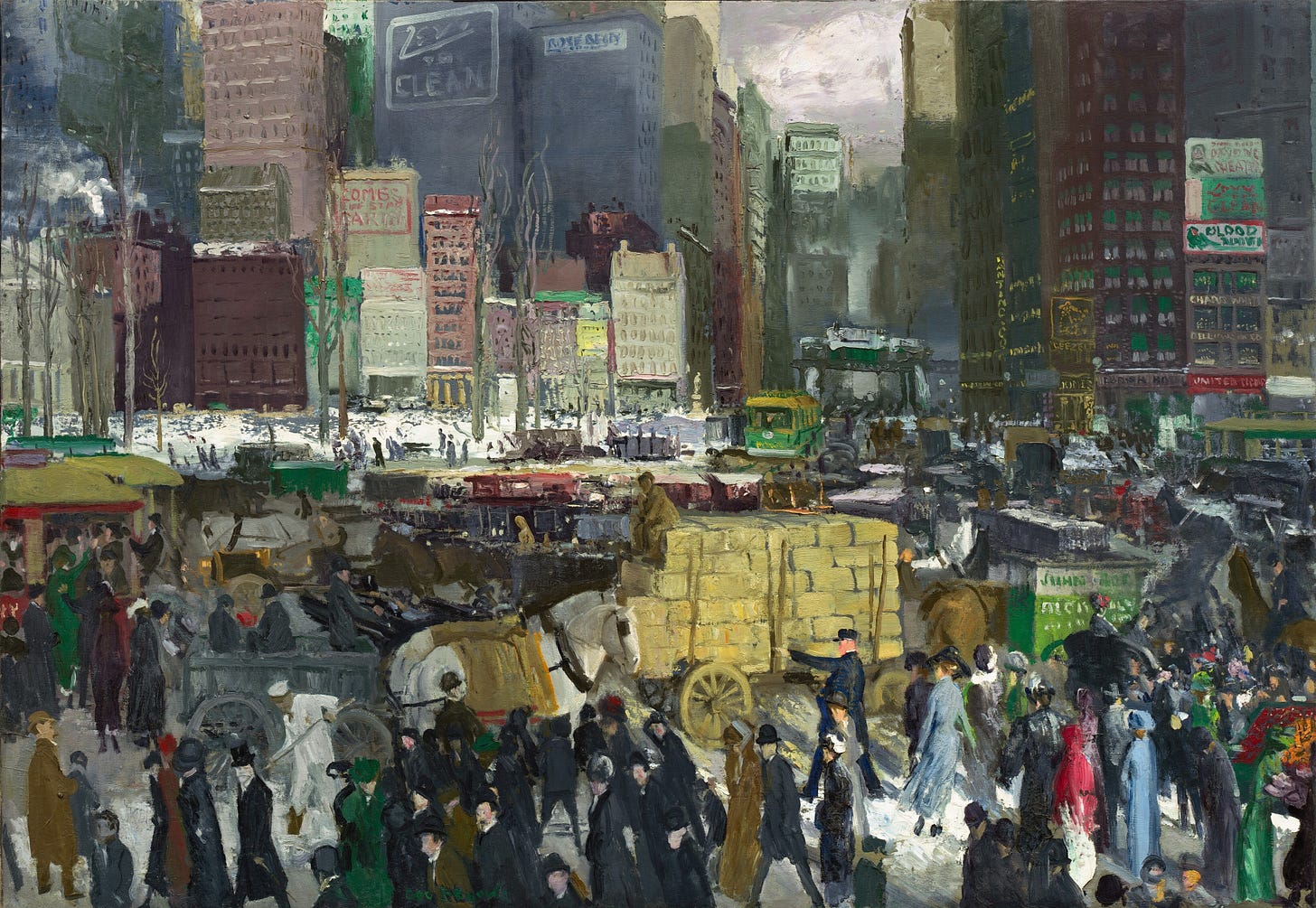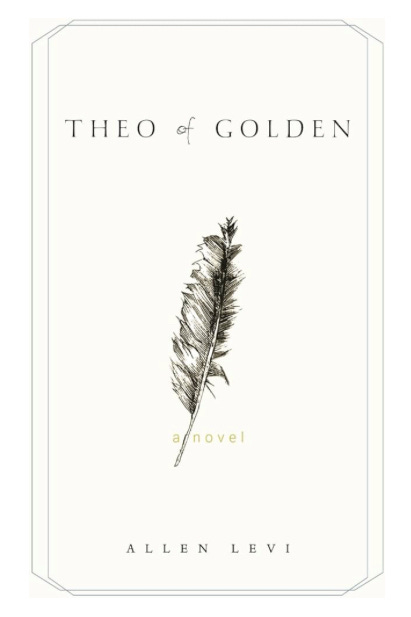Dearest Readers,
When I was a young twenty-something gal living in New York City and attending acting conservatory, I, as many aspiring creatives are prone to do, worked in the food industry. This probably seems cliché and perhaps not overly appealing, but I have to tell you; I loved working in restaurants—especially in NYC.
The great thing about these kind of gigs is that no one working them, except management possibly, is there for the job itself. It’s a steppingstone or means of aid to something greater or of more importance; a way to pay the bills whilst you wait for your big break, finish your degree, or send money home to extended family—among other things. The beauty of this means of employment in an international city is that you end up in little microcosms of the world.
Even as a younger youngster, from my earliest memories really, I was drawn to other cultures. However, growing up in Boise, Idaho, as you can imagine, left much to be desired along the lines of multiculturalism. So, the families that formed in those restaurants were havens of joy for me. And because everyone there had “other” as the most important thing in their life, it was wonderfully non-tribal. For the most part, our only thing in common was slinging plates of food and drink on patrons’ tables. I learned much about the world and people by being a server in a big city.
When I became a Christian, I discovered a similar joy. My first church was back in Boise, and while not wildly diverse—again, cue Idaho—it was more so than others in the area. Even if there was a lack of ethnic diversity, it showed up in various other ways—familial backgrounds, professions, and socio-economic status to name a few. The uniting element was, of course, faith in Christ.
When I moved to the foreign mission field, the variation in my Christian community amplified ten-fold, and oh, how I loved those people. It was rich communion, and I daresay I’ve never quite found the like in an overarching way. Sadly, despite the fact that the global Church is made of—well, the entire globe—churches can get quite tribalistic. But these two expressions of God’s body were heavenly to me.
The point to all this is that I’m not one to find myself at home in a singular tribe. In fact, as I’ve been reflecting on this fact, I realize a tendency toward the opposite. I start pulling away when I sense tribalism slinking in. It’s off-putting. While there can be, and necessarily are, uniting aspects to every community—when thoughts, actions, speech, and even ways of dress all start to look homogenous, something in me balks.
Belonging to a singular community or two seems awfully limiting. I want to learn and grow from people who think and look and act differently; I want to be a student of humanity. Sometimes, that has meant discomfort on my part—I’ve been stretched and had my bias confronted. Sometimes, it means I find it hard to fit in or “belong.” But I’ve come to know this about myself: I’m not going to put all my eggs into one community basket—especially ones that skew toward tribalism. Even if that means feeling lonely at times.
So, what does this have to do with finding my audience?
Back in August, I promised I would eventually give updates to my manuscript progress and the feedback from the two literary agents I met with this summer. Multiple people have also asked me when they get to read my book. I have been reluctant to say anything about any of it simply because I’m still processing next steps, and I don’t have answers right now.
Writers are told, when it comes to genre, voice, content, etc., to…
Narrow your focus.
Choose a lane.
Find your audience.
In order to draw the people who will resonate with your work, you must hone in.
But, like the girl in me who resists tribalism, the writer in me resists this narrowing, too. The manuscript I have written—and which still needs much editing—leans toward the label of commercial, or more likely, upmarket fiction. However, as a reader, my personal tastes tilt toward literary fiction (if you are nerdy about literary distinctions, you can find more about those labels here). As I approach my MFA program, I would like my thesis (a novel) to also lean in the literary direction.
And so, I’ve been asking myself: commercial, upmarket, or literary? To which I answer: can’t I do it all? Or at least the last two? It seems I have a problem before I’m even out of the gate: Narrow your focus.
Both literary agents I met with were kind and generous with their time. Both were encouraging about my writing. One of them, however, because of my style and some of the content, thought I might do better in the secular market. Or if not, she suggested tempering the content to be more conducive to a Christian audience: Choose a lane.
The other agent loved the premise of my book and the writing but wanted me to work on my author platform. Essentially she told me to come back after it grows: Find your audience.
All this is wise counsel, of course, but I’m wrestling with it. I really enjoyed writing my first manuscript, and I would love to see it put out into the world someday. At the same time, I also want to try my hand at literary writing. The problem with the literary aim is my words almost always tangle with faith. From what I’ve gleaned, the minute you put Christian and literary together, publishers run the other direction; this saddens me to no end, but that is for another post.
The bottom line is, I’ve been floundering on where I fit in the literary landscape. Or maybe more aptly, where I want to fit.
In the midst of my writerly existential crisis, a most lovely book came along. The timing couldn’t have been more interesting. Theo of Golden, by Allen Levi, is one of the most intriguing books I’ve read in a long time. It’s literary fiction, self-published, and wholly unique in voice and content. It’s a mystery of sorts, but of the gentlest kind; no blood or gore is found within its pages. What’s more, it has a faith element—one that unfolds so slowly, that it is actually a mystery in and of itself. In fact, all the mysterious elements to this story are so important, I will only say a bit more for fear of spoiling it.
The most basic premise is thus: Theo, an elderly man, shows up in modern day Golden, a quaint riverside city in the American South. No one knows why he has arrived and he’s reticent to share details about his life. Yet as the days pass, Theo begins bestowing gifts of a particular nature to the citizens of Golden, and all those fortunate enough to cross his path experience extraordinary generosity—and in many cases, changed lives.
Again, I want to avoid spoiling the gift of discovering this tale for yourself, but I want to share why the book was so important at this moment in my writing life.
First of all, Theo, as a character, is a non-tribalist. He is a great lover of humanity at large. He sees people—not their profession, or shortcomings, or place in society. He sees them. He seems to know that man, in his best state, belongs to more than one tribe. Perhaps he understands, that on some level, he belongs to all of them. As a result of Theo’s love, people gather around him. I suppose, in some sense, you can say a tribe forms, but his people are wildly different from one another. Reminds me of another Theo who gathers his beloved from every nation, tribe and tongue.
Wouldn’t it be lovely as a writer, to also somehow “find an audience” that was less exclusive? To create work that could bridge across communities? Perhaps not every individual work would—but what about a body of work? I don’t know if it’s remotely feasible, but a writer can dream. Could it be possible to be a Theo in the writing world?
Here’s another curious thing about this dreaming of mine: Theo of Golden was recommended to me by my mom after her book club read it. I have no idea how they stumbled upon the title, but this is a group, as my mom phrased it, of non-church goers. I don’t think most of them would have knowingly picked up a book with Christian themes. Perhaps—but not likely.
Yet, my mother shared that not one of the women had negative things to say about this book—in fact, they loved it. After reading it myself, I find that remarkable. Encouraging. Heart-stirring. Allen Levi wrote and self-published a book that made a marked impression on a group of women who wouldn’t likely pick up a book targeted for the Christian market.
That gives me pause. Oh, to write books that invite in others who normally wouldn’t read a faith-themed book. Something that was written with humanity, rather than a tribe, in mind.
Where does all this leave me?
These are the things I know: I know I need to finish my manuscript—editing it to the best of my ability. I know I want to try my hand at something more literary during my MFA program. I know I can’t ignore the advice of those who are more knowledgeable than me in the industry. And yet, I know I need to follow personal convictions, too—even if that means kicking against some norms; even if that means self-publishing, which is something I really haven’t considered until recently.
But even with all these “I knows,” I still don’t know what I’m doing as a fiction writer!
I have a lot of growth ahead of me—so much to learn—and I have a lot to prayerfully consider. No matter where this leads, I want to be teachable by mentors in the industry. But I also want God to stretch my imagination. My writer’s heart can dream and whisper prayers to him—can my writing buck against tribalism?
Can I, Lord, be like a Theo, who reaches people that differ from one another? Again, a writer can hope.
Dreaming,
Tiffany
p.s. I hope you’ll read Theo of Golden!






Tiffany, I thought this might interest you. I find the stats encouraging! Jane Friedman (maybe you already follow her) is an industry expert (who has a fantastic paid newsletter) and has just looked at this question. Of debut authors (fiction and non) in the US, she found that about 38% of deals were made with people who had “visibility within or connections to the traditional publishing community, [but] rarely online visibility.” Over 20% of people landing agented book deals “didn't appear to have an MFA degree, [weren't] actively publishing, didn't have awards/grants, didn't work in the publishing industry or media industry, and did not have any notable online presence that would have led to a book deal.” Only a tiny sliver - looks like about 1% - of book deals went to online content creators or influencers. Here's the post on Instagram https://www.instagram.com/p/C_0s7mYAMKp/?utm_source=ig_embed&utm_campaign=loading
Thank you for sharing this. I'm definitely going to check out Theo of Golden. The world needs books and writers like this now more than ever. I'm in a somewhat similar situation as you. I'm working on my second draft of a literary historical novel with a love story and I'm hoping I can write it to glorify our Maker while appealing to a wider audience too. Thank you for sharing your journey too.